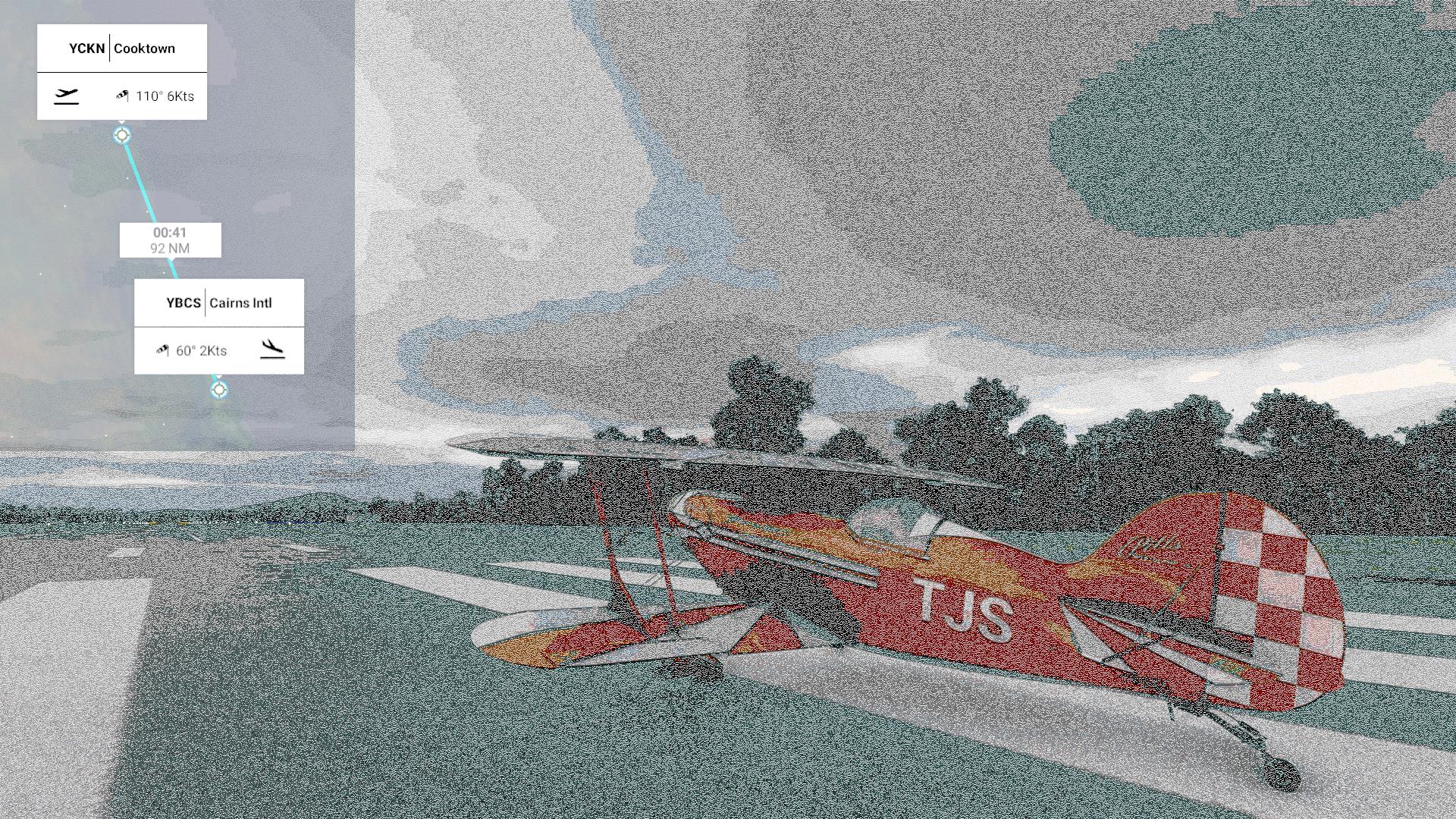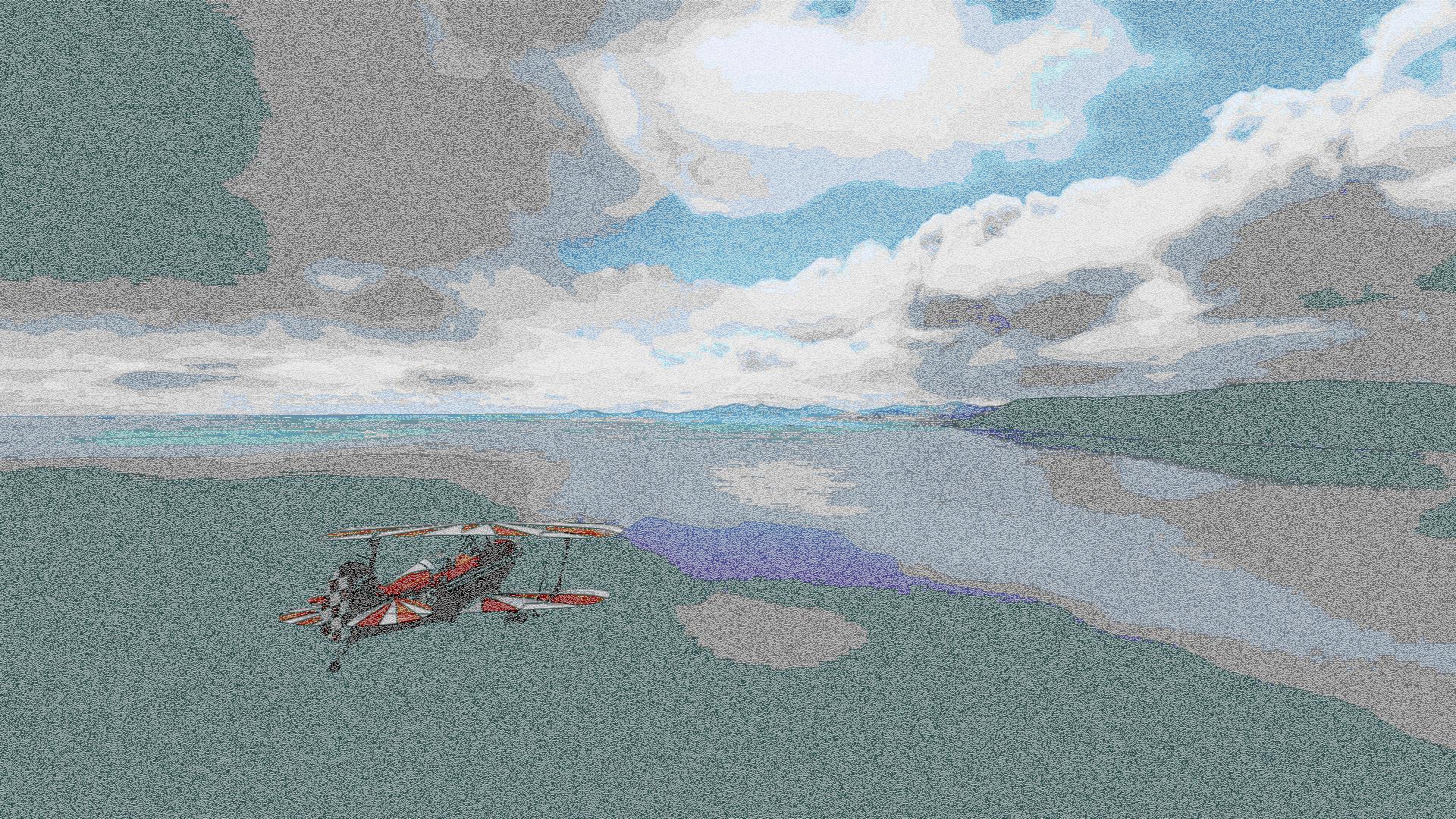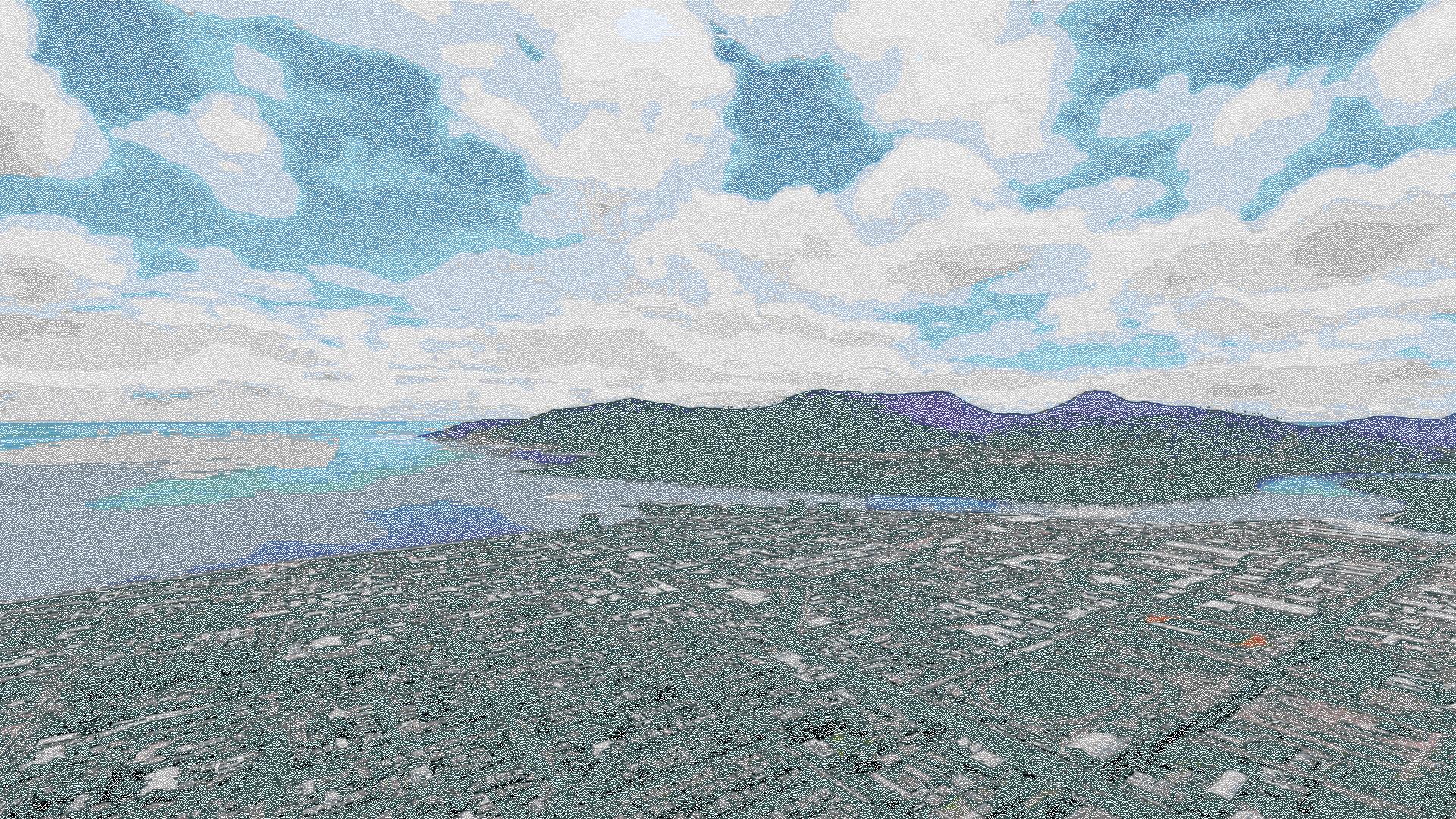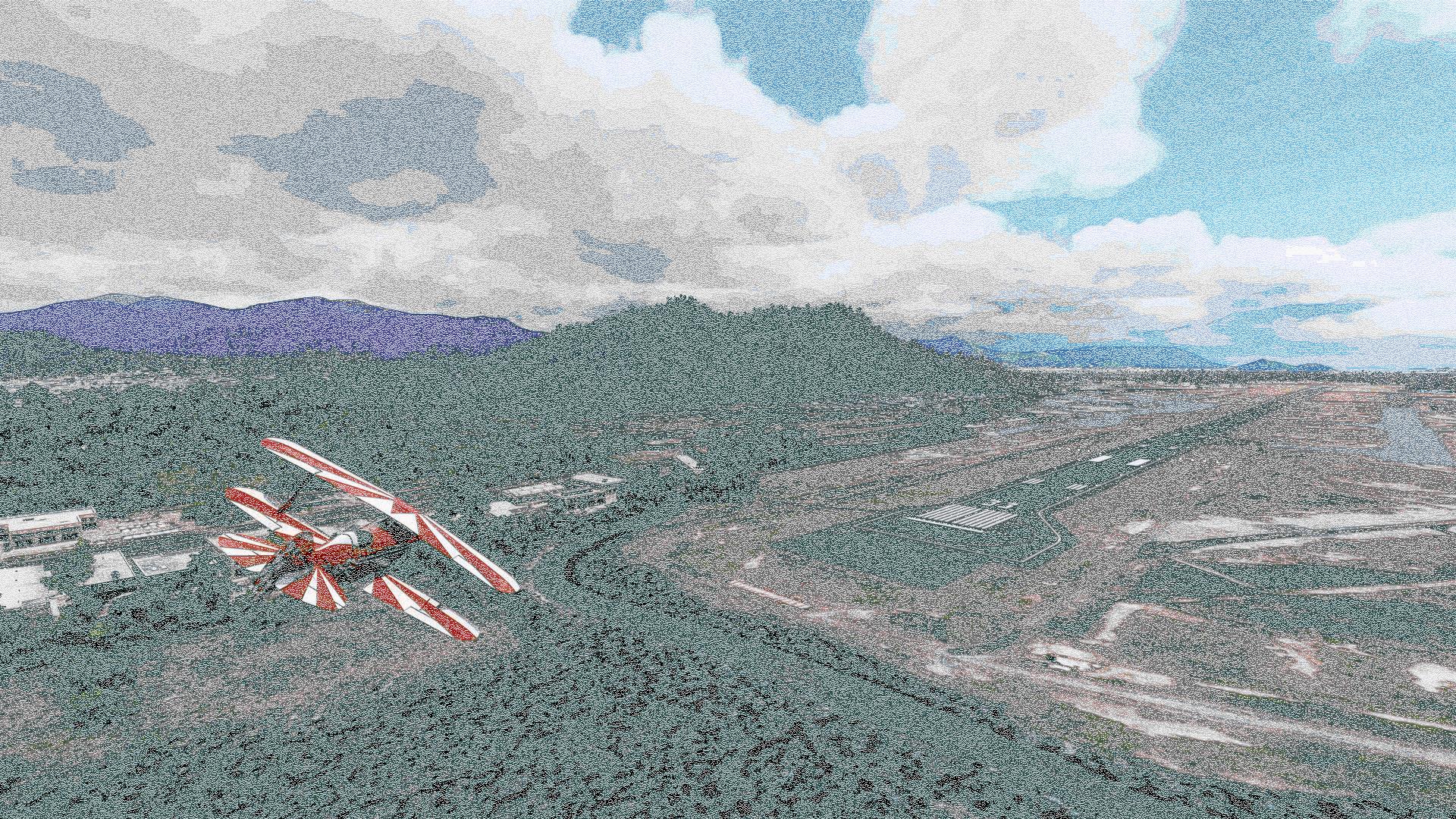Cairns
Queensland

It's a grey day for the trip to Cairns. Or Trinity Bay, as it was known after the arrival of Captain Cook. There wasn't really much happening here from a European perspective for a hundred years after his visit, but then bêche-de-mer
(sea cucumber) fishermen showed up and immediately took possession of the well that the local Yidinji people had dug.
The Yidinji were not cool with this, and in 1872 the name of the place was changed from Trinity Bay to Battle Camp.
When gold was discovered in the region in 1876 there was suddenly the need for a port. Just a little bit upstream from Battle Camp seemed to be a suitable place. The diggers had been calling this place Smith's Landing. So they built a settlement there and called it Thornton.
A little bit later, the native police managed to open a new track from the goldfields, but this track ended at the former site of Battle Camp. So settlement moved back there and they named the place Cairns in honour of William Cairns, then governor of Queensland. But to the Yidinji, the area has always been known as Gimuy. And since they have never ceded their rights to the region I would say Gimuy is the official name. Of course, amongst those of European descent, I am alone in that opinion.
Whatever the name, the people of Cairns have always been a manly breed. Or at least half of them. Maybe slightly more than half. In any event, it required a certain fortitude to live in the wilds back in the day, and by all accounts, that continues today. According to the scholarly website Shit Towns of Australia, Cairns is "a sweltering shitbox with a million percent humidity year-round" and is "for when Townsville feels a bit too fancy". Some say that Cairns is full of Bogans. Which brings us to Ned Kelly.
Ned Kelly was a bad man, from bad stock. His father, John "Red" Kelly, was convicted of stealing two pigs in county Tipperary, Ireland, in 1820. He was sentenced to seven years' transport and served his time at Hobart Town, Van Diemen's Land. He received his certificate of freedom on 2 January, 1842 and moved to Victoria where he became a bush carpenter and sometime fossicker. He actually became something of a success and managed to purchase a small freehold to the north of Melbourne. In 1850 he married and proceeded to have eight children, the third of whom was Edward "Ned" Kelly.
Ned was always what you might consider self-assured. But he didn't start out bad. He learned the ways of the bush at an early age, and was no stranger to creeks. He risked his life to save another boy from drowning in Hughes Creek, and for his efforts, was given a green sash by the boy's family which he treasured until his dying day.
In 1865 Ned's father was found to be in the possession of some meat, the ownership of which seemed to be the matter of some debate. He was fined twenty-five pounds, a sum that no one who had to steal meat could conceivably pay. So he was sentenced to six months at hard labour, back in the days when the term "hard labour" had some meaning. When he was released he never fully recovered and the drink took him. This had a negative effect on young Ned.
After his father's death, Ned and the family moved to some land that no one seemed to be using near Eleven Mile Creek in Victoria. Turns out people were actually using the land, just no one particularly owned it. There was some trouble between the Kellys and the neighbours. The Kellys were charged eighteen times with cattle and/or horse rustling, and convicted in about half of the cases. Now this ratio of convictions is highly significant: these were the days when being charged with something was de facto, if not particularly de jure, proof of guilt. So there has always been some speculation that the Kellys were being framed by the neighbours.
Be that as it may, Ned was declared an outlaw and at age fourteen became something of a protégé to one Harry Power, previously of Penridge Prison and currently of The Bush, where he had found employment as a professional Bush Ranger. A bush ranger was someone, generally an escaped convict, who hid out in the bush and robbed and murdered people. So I guess you could say that Harry was self employed.
Ned and Harry, and later just Ned, and later still Ned and the Kelly Gang, went on to have many splendid adventures in the wilds of Victoria before Ned was captured in a hail of bullets in 1880. On his way to the gallows, his mother gave him her last motherly advice: "Mind you die like a Kelly". And he did, wearing the green sash that he treasured.
But that was not the end of the Kelly affair. While he was definitely a bush ranger, and therefore a bad person, he was also something of a folk hero. He championed the little guys, the squatters, in the bitter land disputes surrounding Victoria's Land Selection Acts, where vast tracks of land were up for grabs but the exact legalities of the process were somewhat muddy. He and his gang had been thieves and murderers, but polite and considerate of others for all that. When Kelly was robbing a man of his watch, and the man said that it had been a gift from his dead mother, then Kelly replied that he would not then take the watch under any consideration. Stories of this sort abounded, and Kelly became something of a Robin Hood figure after his death. A role model for us all. The Story of the Kelly Gang was the world's first feature-length movie in 1902. Its tone was "one of sorrow, depicting Ned Kelly and his gang as the last of the bushrangers". Ned had become the very first Aussie Bloke.
The term bloke is thought to have had its origins in the Hindi and Romany languages, in which the word loke means man. For reasons known only to history, a B was added to this in British slang making the word bloke by the early 19th century. It was slang for either a pickpocket, or, oddly, someone of superior station who could not therefore be a criminal. By 1839 the term showed up in the book Poverty, Mendacity and Crime, and while the spelling had changed somehow to bloak, the definition had become a gentleman. If the B were to be capitalised, as in the Bloke, then it could refer to the captain of a ship in a too-familiar-behind-his-back sort of way. But in Australia, the term had come to mean the Boss, or some other man of status. And thus, with just a few minor changes, the Australian anti-hero, the Aussie Bloke, came into being.
Arthur Tauchert gave us his portrayal of the typical Aussie Bloke in the 1918 silent The Sentimental Bloke. An Aussie Bloke has been defined by Historian Russel Ward as "a practical man, rough and ready in his manners... He swears hard and constantly, gambles heavily and often, and drinks deeply on occasion". The Aussie Bloke lived on in popular culture, especially outside Australia, was romanticized, and turned into Crocodile Dundee. But in real life, in Australia, Aussie Blokes were disappearing and being replaced by Ockers, rough and uncouth stereotypes who speak Strine, which is how you pronounce "Australian" in Strine.
Over time, the Ockers were themselves disappearing and becoming Larrikins, or generally young, always uncultured, often rowdy but ultimately good hearted common folk. Rednecks. All named Bruce if you are a Monty Python fan. The bane of the Larrikins were the Wowsers, or the anti-anti-heros of Australian Culture, but we'll leave those pious bastards for their own story. The Aussie Blokes, the Ockers and the Larrikins are no more, but the spirit that defines being a male in Australia lives on in the Bogans.
Bogans are unrefined and unsophisticated Australian Males. They eat meat pies smothered in tomato sauce. They drink Melbourne Bitter. A lot. They have tatoos of Ned Kelly on their arms. They live in the outer working-class suburbs. Their teeth are not well. They engage in reckless driving practises, solely to gain attention. They wear flannelette shirts, stubbie shorts and ugg boots. They bought everything at a K-Mart. And Cairns is full of Bogans.
So off we go to Cairns!
 Grey skies are gonna clear up.
Grey skies are gonna clear up.
|
 Cairns looks to be quite a big place.
Cairns looks to be quite a big place.
|
 And here we are. Let's go meet some Bogans. The Bogan people can generally be found in K-Marts in Australia, since Walmart's employment practices are illegal here. There are three K-Marts in Cairns. Two of them are quite new.
And here we are. Let's go meet some Bogans. The Bogan people can generally be found in K-Marts in Australia, since Walmart's employment practices are illegal here. There are three K-Marts in Cairns. Two of them are quite new.
|